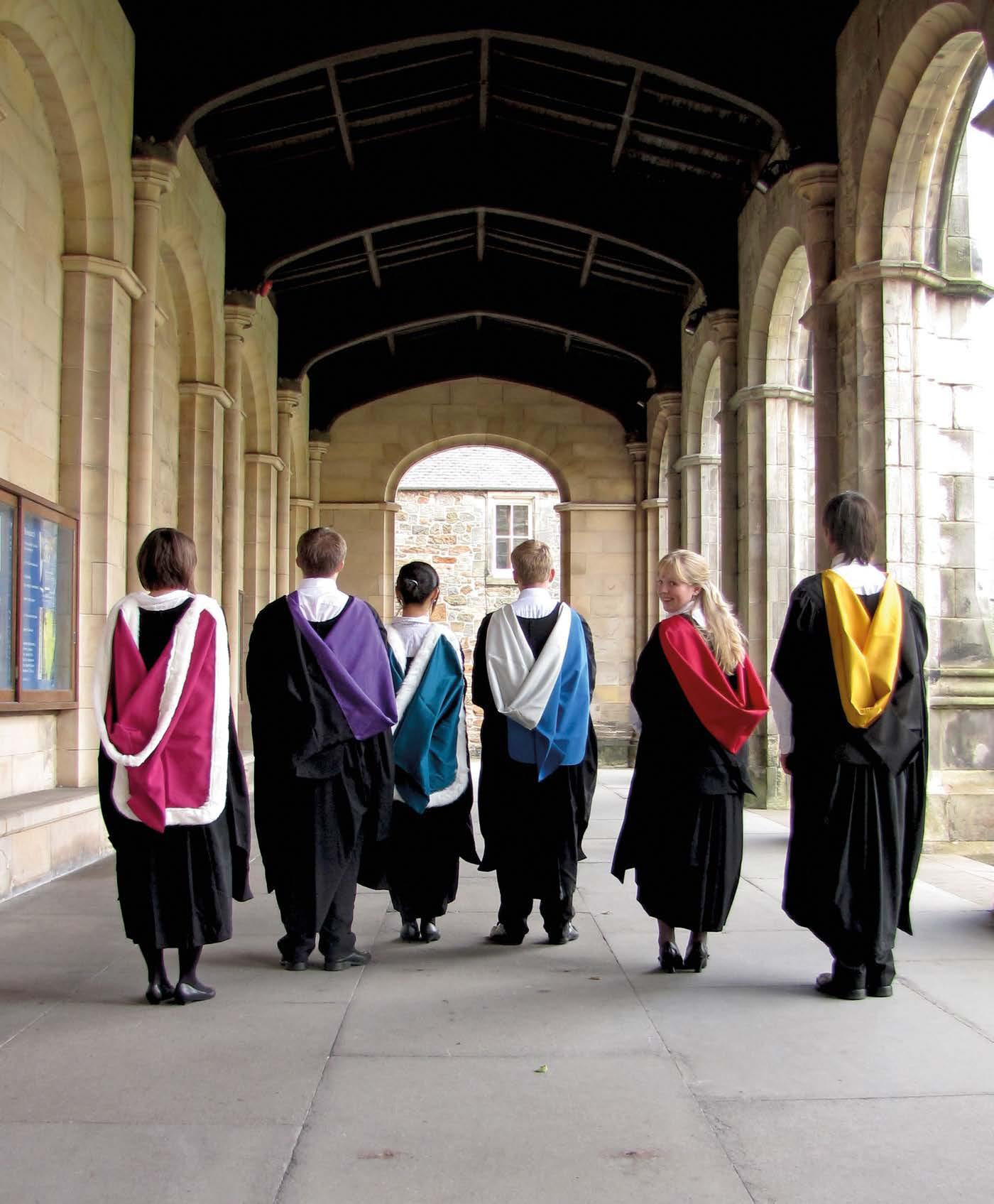
7 minute read
Broaden your horizons
St Andrews is renowned for offering an excellent quality of education across both the arts and sciences
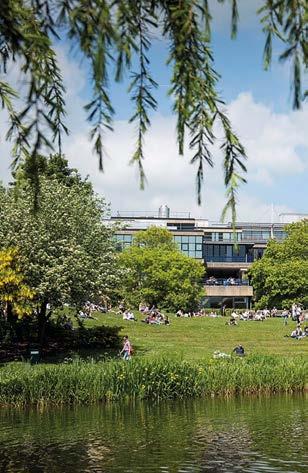
If you think studying at a Russell Group university is the only option, think again. There are many other high-ranking universities offering outstanding courses, excellent student satisfaction and employability rates, says SARAH OSHUN-WILLIAMS of Gabbitas Educational Consultancy
Although the Russell Group is often attractive due to the well-known names within it, it’s always worth considering other university options, where students can pursue specific highly-ranked courses as opposed to just the traditional sciences and humanity subjects.
Russell Group universities
The Russell Group (RG) consists of 24 prestigious universities who all play a significant role in the cultural and economic life of the UK, and all share a common characteristic: their focus on producing leading research and maintaining a consistent reputation for strong academic achievement.
Given their reputability, RG universities tend to have very rigorous admissions criteria. Their entry requirements are often higher than those of other universities, leading to a competitive admissions process, especially for the more highly sought-after courses, like medicine, sciences, economics, and law.
University of Bath ranks consistently high in higher education league tables
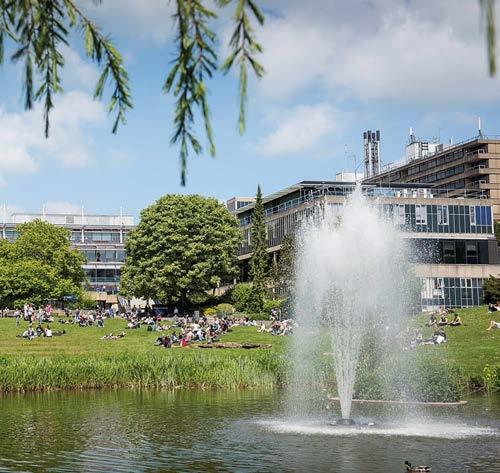
Non-Russell Group universities
Despite the RG’s popularity for both British and international students alike, there are approximately 106 other universities in the UK outside of the group that perform equally as well and sometimes even better; are known for their academic excellence; teaching and employability rates; and offer unique courses.
For example, notable names such as St Andrews, and Bath rank consistently high in league tables each year, yet they’re not part of the RG, even though they are often mistaken to be because of their outstanding performance and provision of excellent quality education.
More non-RG universities include Loughborough, which is known for its excellence in criminology, media, and sports; Royal Holloway for its sciences and management; SOAS for its development studies, anthropology, and politics; and City for its strong business and industry links.
Non-RG universities are often more flexible than their highly selective RG rivals, usually having lower entry requirements. Of course, this depends on the degree – some courses still have high entry requirements, but they tend to be more realistic or achievable. While St. Andrews requires AAA-AAB for medicine, Imperial - an RG university - requires A*AAAAA for the same degree. Where Durham s
SPECIALIST COURSES
Goldsmiths, University of London
BA Promotional Media
Royal Holloway, University of London
BSc Earth, Climate and Environmental Change
University of Greenwich
BA Film and Television Production
University of Bath
BEng Electronic Engineering with Space Science and Technology – Bath BSc Sport Management and Coaching
Loughborough University
BSc Chemistry with Computing MSc Construction Project Management with Building Information Modelling
City, University of London
BSc Investment and Financial Risk Management BSc Music, Sound and Technology
Heriot-Watt University
Stowe students are now more aware MSc Brewing and Distilling of the vocational routes on offer
Leicester University has achieved a silver TEF award
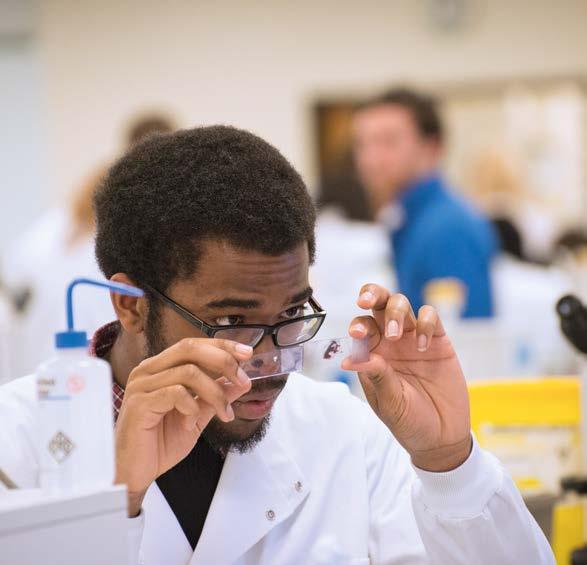
(RG) offers AAB for business management, both the University of Westminster, and Royal Holloway require lower at ABB-BBC and AABABB for the same degree, respectively.
Notably, there’s often less rigidity and, in some cases, more willingness to consider applicants who fall short by a few marks or have complicated cases with their grades and educational background. Additionally, they are often happy to consider late applicants (aside from UCAS clearing). This is due to non-RG universities usually still having spaces available, which in comparison is unlikely at RG universities, due to being oversubscribed, making chances of available spaces after initial admission deadlines small.
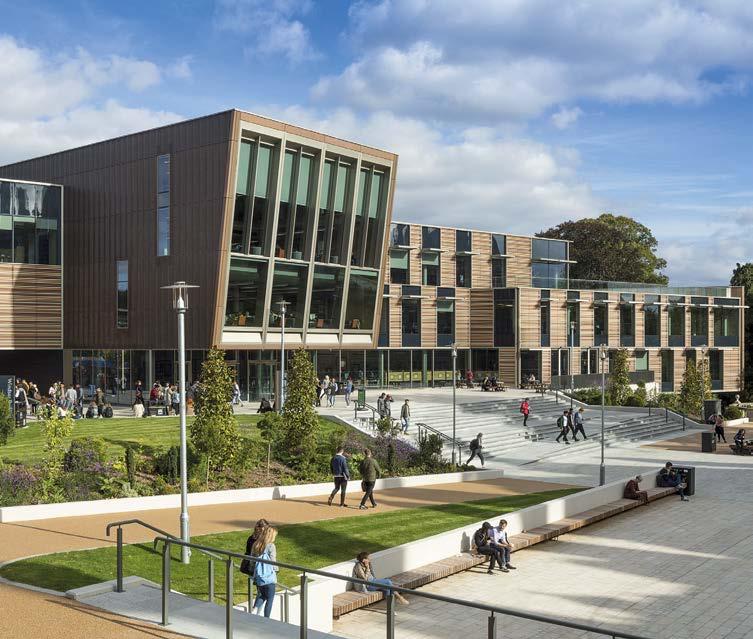
Quality of education

In the past, the quality of education provided by non-RG universities has been questioned, especially internationally. One thing that has helped change this view is the option to participate in the Teaching Excellence Framework (TEF), which measures the quality of the student experience provided by each university, especially within the areas of teaching, learning, and graduate employability or further study outcomes.
Participating universities are awarded bronze, silver or gold. Not all RG universities participate but for those that do, most achieve silver and gold awards. However, there are many non-RG universities that achieve the same awards. For instance, Bath and Loughborough have attained the gold award, just like Cambridge and Imperial College, as seen on the Office for Students.
Royal Holloway is celebrated for its support network

Additionally, Brunel, City University, and Sussex have all achieved the silver award, just like King’s College, UCL, and Bristol.
Evidently some of the participating RG universities have the silver award while some non-RG universities have earned gold. Indicating that, despite not being a part of the RG, an excellent quality of education is still offered within these institutions.
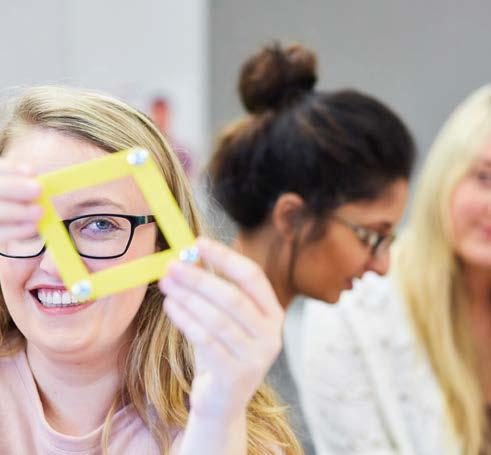
Specialist courses
Another great advantage of non-RG universities is their reputation for providing specialist courses, allowing students to choose a degree that’s tailored more to their interests, or focused on a specific field.
Some examples include Greenwich University, the University of Westminster, and Goldsmiths, who, despite usually ranking lower down league tables, offer some of the most unique courses in art and design, business, media, music, technology and more. Many students opt for these universities because of the unique courses they offer, which RG universities don’t always provide.
Student life
Universities actively ensure that its undergraduate students settle in well for the duration of their studies. This is evident in the wide range of support and wellbeing services on offer, including help with finding accommodation, academic support, careers advice, and counselling. Some universities even go as far as assisting new students by providing student-buddy systems, allowing current undergraduates to offer support to the new, as well as make friends.
Many students praise non-RG universities on their welcoming atmosphere, and for regularly organising social events to encourage networking. Royal Holloway is often
University of Hull is a public-research university
University of Bradford offers cutting-edge, technologybased degree courses
commended for its support network, sense of belonging and community feel.
In summary, there are many non-Russell Group universities that perform just as well as those within the Russell Group, and provide equally satisfying environments, support and student experience, meaning that it is definitely worth considering them when beginning your higher education journey.
Prepare to board
Outstanding facilities, an all-round education, and a rich heritage: there are many reasons to consider the Duke of York’s Royal Military School, says Principal Alex Foreman.
The country’s only state fullboarding school, the Duke of York’s Royal Military School (DOYRMS), offers an affordable option for families seeking a boarding school environment with high standards of education.
Set on top of the renowned White Cliffs of Dover, the school’s 150-acre parkland estate offers unrivalled facilities and a wide breadth of opportunities for its students. Open to 11 to 18 year olds, DOYRMS is based on an independent-style model, with Saturday morning lessons and co-curricular activities throughout the week.
However, parents are only required to pay for boarding, as the government pays for the education. This means the inclusive boarding fee is only £5,166 per term which is £15,498 per year (correct at time of writing), with limited scholarships available. This fee covers fullboarding, catering, laundry and more than 80 clubs and activities per week, including Combined Cadet Force and the Duke of Edinburgh’s Award scheme, for which the school is an accredited centre. Official progress figures for GCSE place DOYRMS in the top top two per cent of schools nationally. At A-level, students average a B+, with 66 per cent of grades awarded at A*-B. In recognition of the exceptional academic standards, the school has received the SSAT Educational Outcomes Award 2020. The award-winning school, with outstanding managers and leaders (Ofsted 2018), treats every day as an open day – enquire now to book a tour. www.doyrms.com



and looking back




A leading independent day and boarding school for girls and boys aged 4-18, set amid stunning countryside in Northern England

Scan to learn more about our School and what makes a ‘Barney’ education so special Alternatively, contact 01833 696030 or email admissions@barneyschool.org.uk










